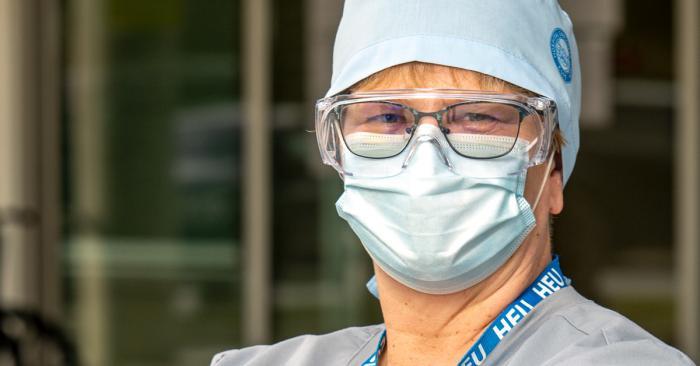
“I'm a Speech and Hearing Assistant at the hospital. On the acute units, I work primarily with patients who've had a stroke or brain injury and do therapy to work on neurological conditions.
I'm also a brain injury survivor, so I know what it's like not to find the word you want to say or pronounce things correctly. That brain injury made me more compassionate and taught me to slow down and think before I speak.
A lot of what I do is going back to the basics with patients. After a stroke, a portion of the brain has potentially died, and another part has come in to take over.
I might work with a patient to produce a sound. Sometimes it's matching up a word and a picture, or sometimes, there's role-playing and activities like Go Fish.
You have to dig into what motivates a patient. And knowing a bit of their personal lives and their families helps to get an engaging conversation going.
Recently I was in the room of a patient who had had a stroke. Her stroke had drastically affected her ability to talk, eat and drink. It had impacted her ability to communicate, to be understood and to produce the correct words.
The nurses helped her make a phone call to her husband. They were both on the verge of happy tears because they were able to communicate.
To hear this conversation and to see the drastic improvement in her was a huge step forward. And it was the first time her husband had been able to understand her.
It was heartwarming and a little heartbreaking because it was a conversation that should have happened in person.
I love my job because it's like watching “my kids” graduate over and over again. It is so fabulous.”
Betsy, Speech and Hearing Assistant, part of the health care team